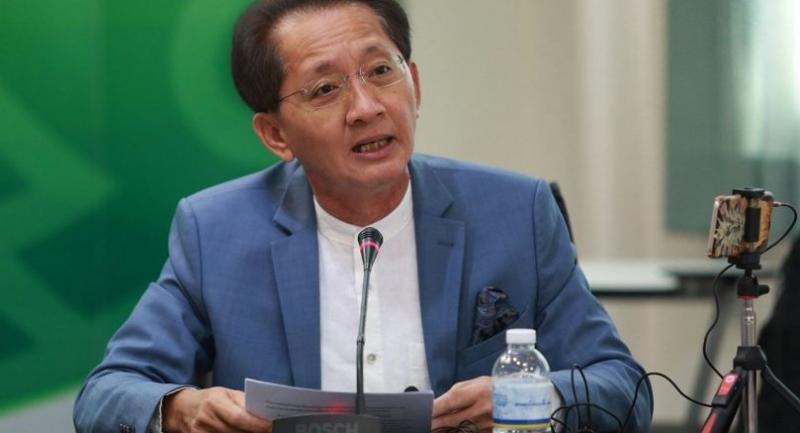Anger at new junta law banning populist policy

POLITICIANS yesterday lashed out at the junta’s latest move to block populist policy with a new law.
The law prohibits Cabinet members from attempting to boost their support with budget spending that may damage the economy.
The law adds more difficulties to the already-troubled party policy formulation, they said.
The State Financial and Fiscal Discipline Act of 2018 requires that members of the Cabinet strictly comply with financial and fiscal disciplines of the state.
Article 9 of the law states that in preparing annual state budgets, managing the country’s monetary and fiscal affairs, and creating public debt, Cabinet members have to carefully take into consideration such factors as the benefit to the country and the people, worthiness, financial burden, risks and possible damage to state finances.
“The Cabinet shall not run the state’s affairs with a goal of creating political popularity that may cause damage to the country’s economy and people in the long run,” the clause states.
The new law requires that in preparing annual budget bills, the Cabinet must show the sources of revenues and estimated revenues, expected outcome or output from payments, and conformity with national development plans.
Published in the Royal Gazette on Thursday, the new legislation is required by the Constitution, which has been in effect since April last year.
The new law drew mixed reactions. One observer urged the military government to look at its current policy of cash handout programmes to see whether they violate the law.
Wirat Kalayasiri, a member of Democrat Party, said that with the new Constitution, parties already have to strictly follow the 20-year national strategy. That made it difficult for parties to create their own policies to respond to voters’ demands.
The new legislation made the situation more difficult than it already was, Wirat said.
Nikorn Chamnong from Chart Thai Pattana Party said that the law may solve one problem of populism but it also created another.
“It is true that populist policies are not healthy. But we cannot deny that this legislation will also complicate policy formulation,” he said. “The most worrisome part about it is who will tell which policy is populist or not. What’s the definition exactly? Will we have to take the matter to the court if we cannot reach an agreement?”
However, government officials agreed with the junta’s move. The law has been pushed for many years by the Finance Ministry’s Fiscal Policy Office, said Soraphol Tulayasathien, the Finance Ministry’s director of Economic Stability Analysis Division at the Fiscal Policy Office.
Previously, fiscal discipline was a set of guidelines stipulating public debt should be capped at no more than 60 per cent of gross domestic product (GDP). Now it is upgraded to a legislation.
Under the new legislation, the committee chaired by Prayut will decide what economic policy would be defined as “populist policy” that could have a serious negative impact on government finances.
The law also requires that the government lay out a midterm budget or a three to five-year budget plan, along with an annual budget formation, said Soraphol.
Political scientist Somchai Pakkapaswiwat said that the new law’s interpretation will depend on the discretionary power of the committee and its interpretation of what is or is not populist policy.
He said he preferred that parliament scrutinises the government’s spending plan or there should be an independent budgetary organisation, such as a nonpartisan Congressional Budget Office in the United States, that looks at the government budget.
Meanwhile, Thirachai Phuvanatnaranubala, a former Finance Minister supported the law but said the government should also look at policies which may run counter the law, such as cash handouts to the 11.4 million poor people under the welfare card programme.
Since the 1997 financial crisis, the Thai government has run fiscal deficits almost every year to boost the economy, which has been affected by the country’s declining competitiveness and political instability.
Over-spending to boost political support, notably from voters in rural areas, which was done by governments under Thaksin Shinawatra and his associates, was deemed politically incorrect.
The military government plans to spend Bt3 trillion for the 2019 fiscal year starting this October and plans to borrow Bt 445 billion to finance the budget deficit, estimated to be equivalent to 2.6 per cent of GDP. It also expects to have a current account surplus of 6.1 per cent of GDP due to an increase in exports and tourism.
